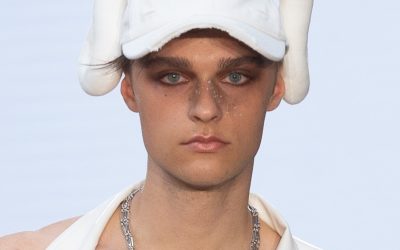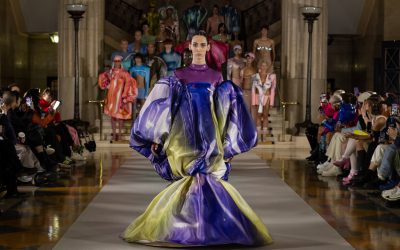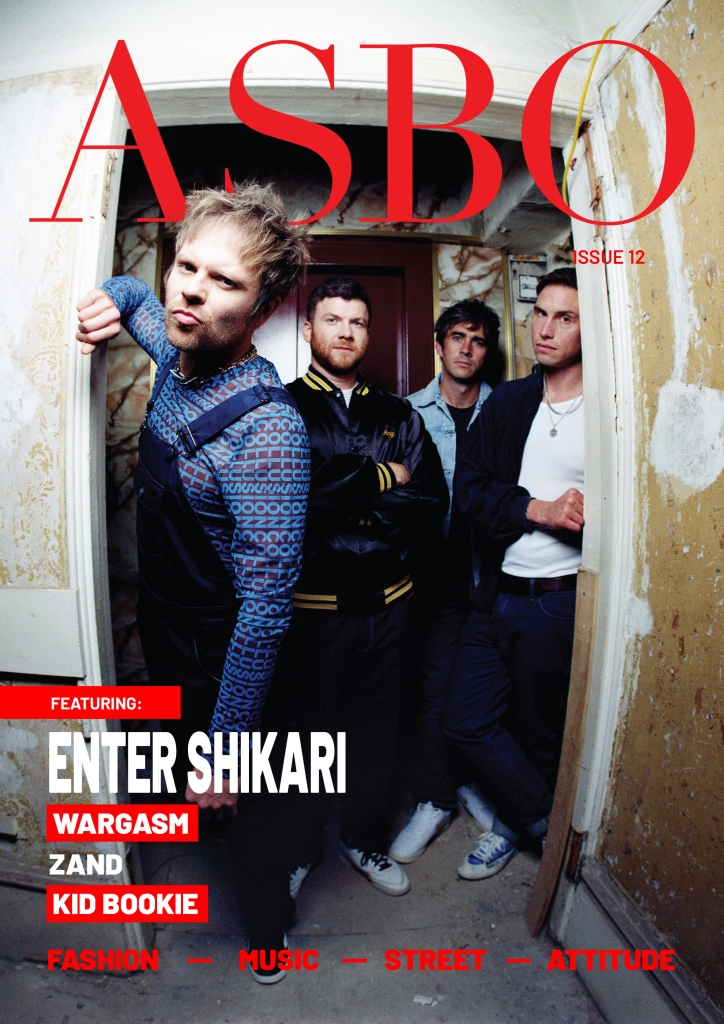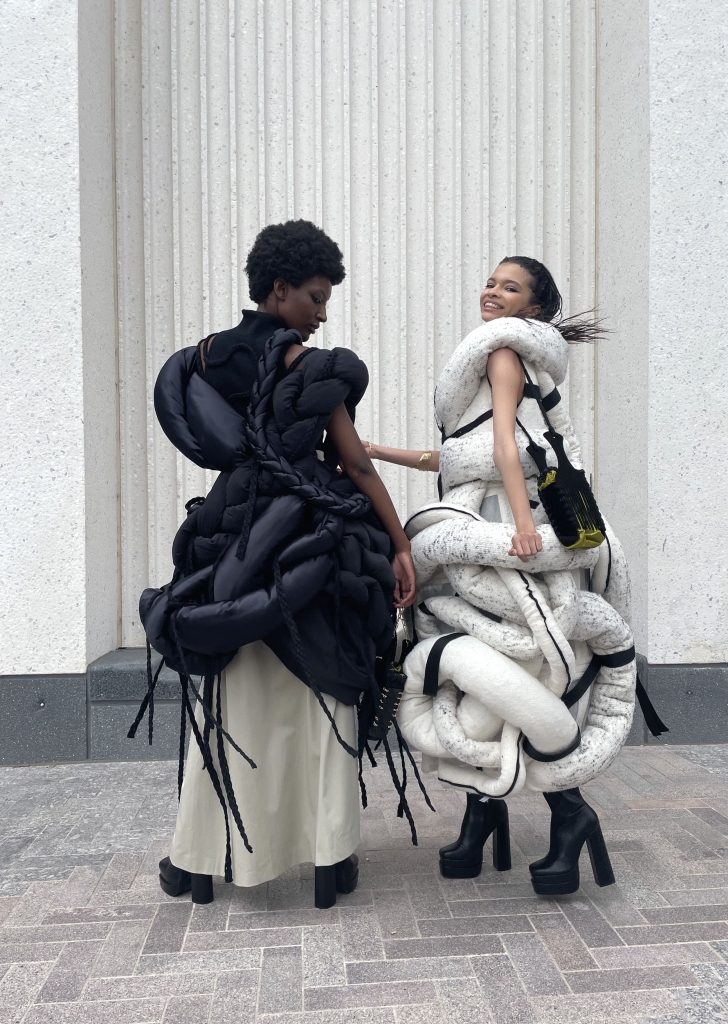
With ASBO Issue 13, The Graduate Showcase fast approaching, here’s a sneak peak into the world of Manchester born Levi Warren-Howard and her graduate collection.
Tell us a bit about your FMP, what was your inspiration behind it?
Mixed feeling about my thick curly hair come from the attention it provides, being in school hearing “ tie your hair back” and “move out of way” because my hair was “distracting”. When I was younger people would often shake their hand on my head. My mum would tell them it is inappropriate to touch me and I didn’t like it. Being stopped and being asked to touch my hair or even worse people not asking made me tie me hair up most of my life, to hopefully limiting unwanted attention.
One upsetting time that sticks with me. I was walking up stairs and a man grabbed my hair saying “I like your hair” and pulled it, pulling me backwards and stumbling backwards on the stairs. I no longer enjoy going out through the fear it will happen again.I understood that if this was still happening to me it could be happening to others. I found many stories from other people which helped me connect to others through hair.
It is nice to hear how beautiful it is but the contrast of questions and constant touching is dehumanising. Touching my hair can be linked to power and ownership. These messages are subconscious. I don’t think harm is meant when these interactions happen, however the perception is different for me. I wanted to understand what people find interesting when they see my hair through asking others to “draw my hair”.
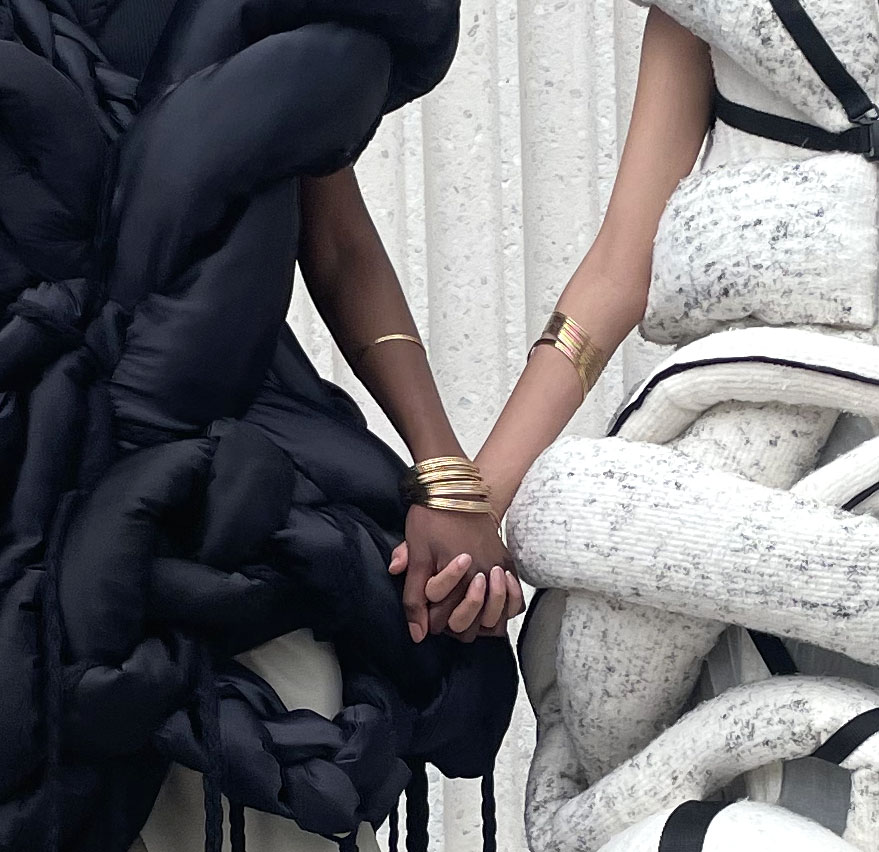
The contrasting beauty and ownership in these transactions is portrayed within collection. Soft satins taken from the hair bonnets paired with matte cotton drills/ twills to show strength in hair. Curved seams inspired by curls and waves, accompanies gathering taken from hair bonnets. This collection tells a complex story of my black hair, enlightening people on what it’s like to have. Looking into different hair types such as, curls, afros and braids etc. By making garments I allow the wearer to experience how it feels to have my hair. The warmth, weight, beauty, pride and curiosity of others.
Styling inspired by historical references in my dissertation, ‘how is black hair portrayed to society?’ Looking at positives and negatives links to black hair through history to modern day. “It was believed that hair, located closest on the human body to the sky was the conduit for a spiritual connection with God.” Taking this conception created tall head pieces. During The Black Panther movement “The afro was a power statement at this time, hair would be styled in this way to demonstrate pride during the movements.” This statement influenced the collections bags.
How did it feel winning the Culture and Heritage Award at GFW22?
I was very shocked at first, but now I am proud of myself, it felt like the hard work had paid off.
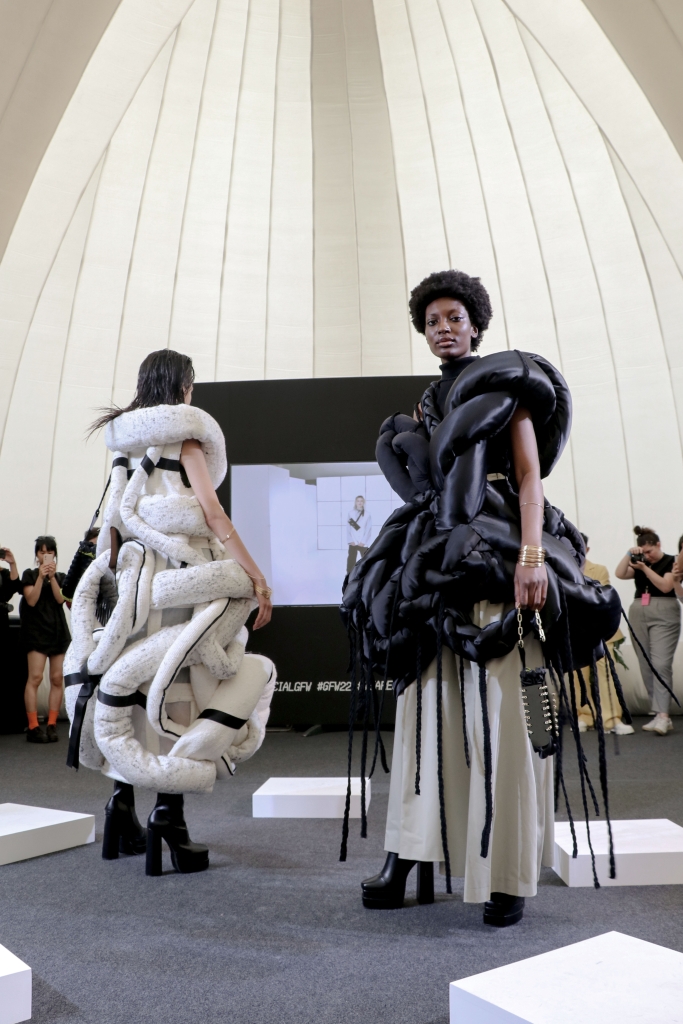
What has been your biggest inspiration to create fashion?
I have been drawing designs for clothes since I was in primary school, admittedly at that stage they weren’t great. Growing up I enjoyed seeing fashion shows online, the uniqueness of the different design houses. When I chose to study fashion, I looked at catwalks for inspiration as that was all I was interested in. I then worked at Barbour which opened my eyes to Commercial fashion. In my fourth year I discovered my design handwriting this was because Noir Kei Ninomiya, the combination of wearable art and commercial clothing is what inspired me.
What do you want your work to say to the world?
I created my project to enlighten people of what it is like having Black hair and how overwhelming it can be. In hopes that people who see or read about my work understand why asking “can I touch your hair” is unnecessary and can be received badly. Though I understand our hair is beautiful, I do not think anyone would want this attention it brings.
Did you face any challenges in producing your FMP, if so how did you overcome these?
Through the first few months of creating my project I was told not to continue with the concept, I was often asked ‘how can you create a collection from hair’. This was because I wanted to design without referring to garment references. I also chose to create wearable art which was a new way of designing for me, I knew wouldn’t be easy with all the hand stitching and time limits. I overcame this by working longer hours than normal and conducting lots of research to fuel my project, the research helped me explain where I wanted to go with my collection and eventually convinced people I could do it.
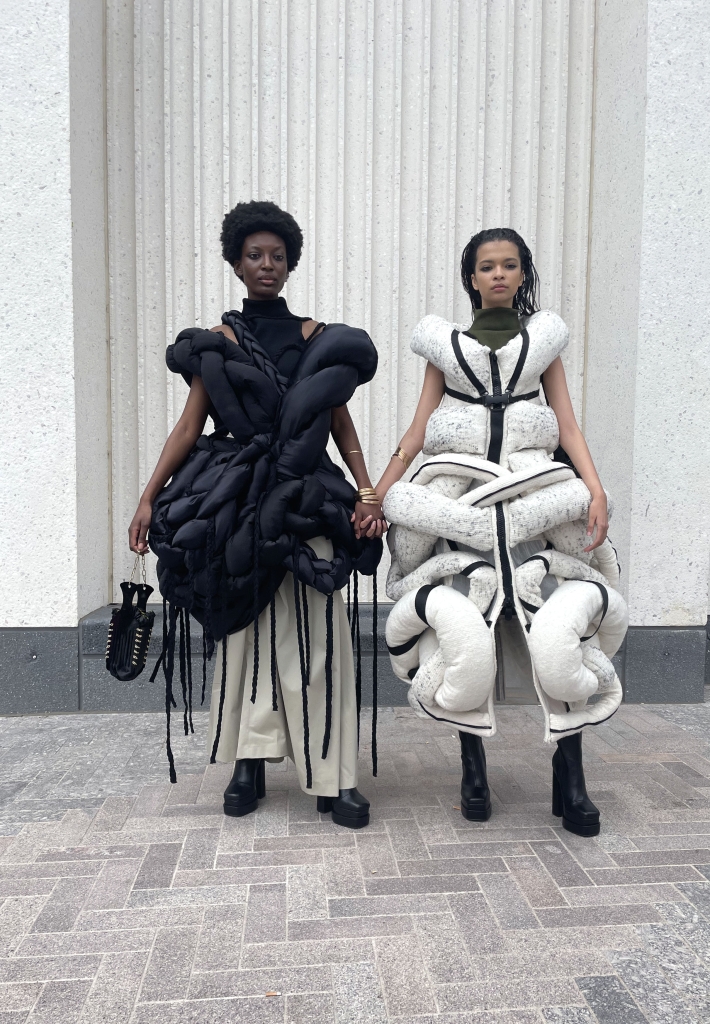
What would you like to change about the fashion industry? Is there anything you think needs improving?
During my research for my dissertation (How Is Black Hair Portrayed to society?), I learnt A lot about How natural Black Hair has been shown to be unprofessional in the work place. This is an area I hope to improve, I personally don’t feel like hair should be a deciding aspect of employment. Not only Natural hair but black hair styles should be embraced and should be a personal choice, without bringing any fear of being seen as unprofessional.
What are your plans for the future?
I am currently looking for work in fashion design, womenswear. I am putting together a magazine style book to help spread the message of my collection. This pulls together everything from my collection and reasons behind it, as well as hair stories from others and my dissertation which was based on Black hair.
Name: Levi Warren- Howard
Course: BA Hons Fashion Design
University: Northumbria University
Interview by Ella Kenneally




